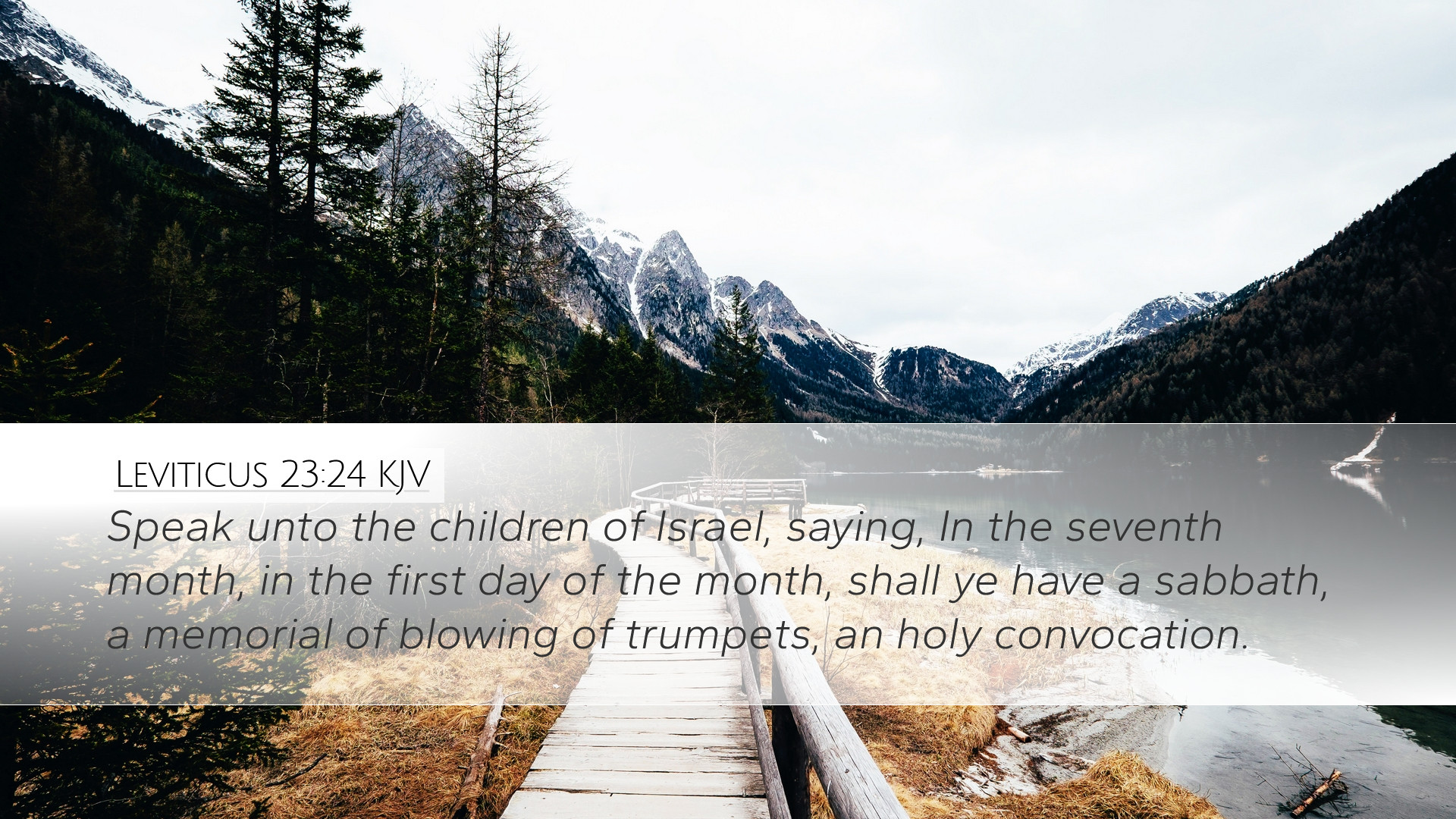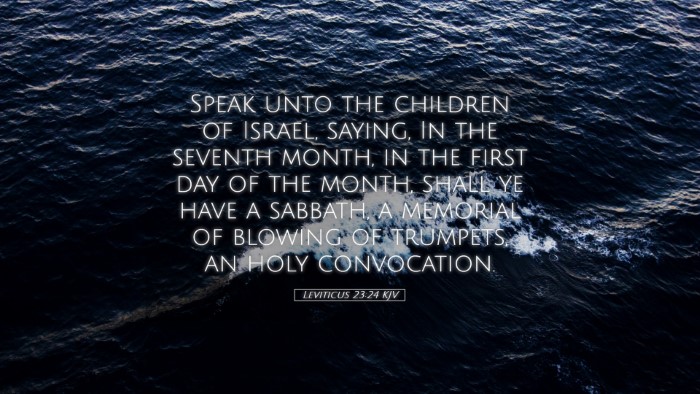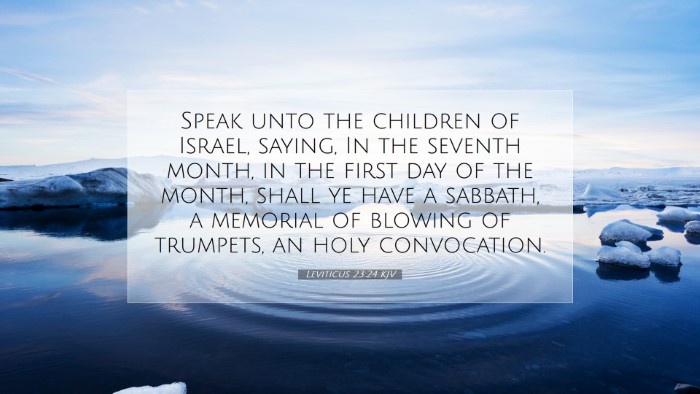Commentary on Leviticus 23:24
Verse: "Speak unto the children of Israel, saying, In the seventh month, in the first day of the month, shall ye have a sabbath, a memorial of blowing of trumpets, an holy convocation." (Leviticus 23:24)
Introduction
This verse initiates a special observance in the Jewish calendar, marking the first day of the seventh month, Tishri. It is a pivotal moment that sets the tone for the solemn festivals to come in Israel’s religious life. The importance of the "blowing of trumpets" or shofar is underscored, representing a call to attention and reflection.
Historical Context
The Feast of Trumpets, or Rosh Hashanah, is deeply rooted in Israel's history and has profound theological significance. As noted by Matthew Henry, it serves as a reminder of God’s sovereignty and authority over His people. The trumpet sounds signify a call to both repentance and joyous celebration, encapsulating the dual nature of the life of faith.
Trumpets in Ancient Israel
The trumpets served multiple purposes in Israel’s history, including the announcement of significant events, calling the people to worship, and signaling times of war (see Adam Clarke). This multifaceted use of the trumpet emphasizes its role as a divine communicator, inviting the people into greater intimacy with God.
Theological Implications
The blowing of trumpets can be viewed as both a literal and metaphorical awakening. According to Albert Barnes, it symbolizes the call to repentance and the need for alertness in spiritual matters. This ceremonial practice demonstrates Israel's need for divine guidance and acknowledgment of God’s covenantal relationship with them.
Call to Remembrance
The command to have a “memorial of blowing of trumpets” implies a purpose: to remember God’s past deeds and to anticipate His future interventions. The proper observance invites the Israelites to reflect on their history, their deliverance from Egypt, and the ongoing faithfulness of God.
Covenant Community
Additionally, this celebration reinforces the concept of the covenant community, reminding God's people of their collective identity and responsibilities. Matthew Henry emphasizes the necessity for communal memory and action, urging congregations to be diligent in these observances.
Exegesis and Application
As we bring the insights from public domain commentaries together, several critical themes arise for modern application:
- The Importance of Remembrance: Just as Israel was called to remember their covenant relationship, contemporary believers are invited to reflect upon their spiritual heritage and the significance of Christ's atonement.
- Spiritual Awakening: The call of the trumpet serves as an unceasing prompt for believers to awaken to their spiritual realities, urging them towards repentance and renewal.
- Community Worship: The observance of this holy convocation reinforces the need for community within the faith, bringing believers together to honor God and support one another in their spiritual journeys.
Conclusion
In conclusion, Leviticus 23:24 is rich with meaning, invoking a call to remembrance and awakening in the life of the believer. It transcends its ancient context, beckoning modern congregations to engage in reflection, communal identity, and adherence to the perpetual call of God. As pastors, students, theologians, and scholars delve into this verse, may they uncover deeper insights into God’s character and His continual work in the midst of His people.
Further Reflection
In light of Leviticus 23:24, consider the following questions for personal reflection or group discussion:
- What does the blowing of the trumpets signify in your personal faith journey?
- How can the church today uphold the spiritual practice of remembrance?
- What modern-day applications can we draw from the concept of a holy convocation?


